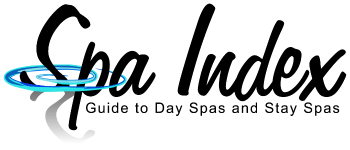Embracing a Healthy Menopause with Acupuncture and Chinese Medicine
Acupuncture and Chinese Medicine are based on the concept of Yin and Yang, two forces that must be balanced in the body. The concept resembles the western notion of homeostasis. Yin is associated with coolness in the body, and Yang is responsible for warmth. During menopause, Yin declines and so there is a relative excess of Yang in the body. This manifests as hot flashes and night sweats, two complaints frequently reported by menopausal women.
Other symptoms commonly reported are depression, anxiety, poor concentration, irregular and/or heavy menses, slow metabolism and weight gain, thinning hair, dry skin, vaginal dryness, mood changes, and decreased libido. Some of these symptoms are associated with Yin Deficiency, however, there are other factors the acupuncturist will consider before reaching a diagnosis.
Menopausal symptoms also may be caused by an imbalance in the energetic nature of the kidneys, heart, spleen, or liver. Symptoms may also relate to an imbalance in the energetic quality of the blood. As a result, in Chinese Medicine, women who are given the same western diagnosis may be treated with very different acupuncture protocols and/or herbal preparations, depending on the underlying cause of the problem. In Chinese Medicine, the unique presentation of each individual, including their emotions, is always taken into consideration during diagnosis.
Acupuncture has become a globally accepted natural form of treatment for menopause and the World Health Organization has approved acupuncture for the treatment of menopausal symptoms.
A 1997-1999 study conducted by the University of Pittsburg and published in Holistic Nursing Practice in 2003, proved the effectiveness of acupuncture in the treatment of menopausal symptoms. The results of this study showed that hot flashes decreased by 35% and menopause-related insomnia decreased by 50%.
In 2009, the journal Menopause published a Norwegian study which compared a group of post-menopausal women receiving both acupuncture and self-care with a group of post-menopausal women receiving only self-care. This study revealed that hot flashes decreased in frequency by 5.8 per 24 hours in the acupuncture/self care group and only by 3.7 per 24 hours in the control group. The intensity of hot flashes was also found to decrease by 3.2 units in the acupuncture/self care group and only by 1.8 units in the control group. The researchers concluded that the combination of acupuncture with self-care revealed a clinically relevant reduction in symptoms of hot flashes and an increase in quality of life in post-menopausal females.
The average acupuncture treatment lasts 30 minutes. Thin needles are barely felt as they are superficially inserted into points while the patient rests on the table and listens to relaxing music. In addition to acupuncture for the treatment of menopausal symptoms, the acupuncturist may also suggest lifestyle changes, dietary changes, gentle movement exercises, and sometimes Chinese herbs.
Maria Mandarino, LAc, DipAc (NCCAOM), RMT, NCTMB, is the owner of Spirit Point Acupuncture in Arizona. She offers advanced bodywork modalities such as AMMA Therapy®, Craniosacral Therapy, and the John Barnes Approach to Myofascial Release. Your session may also include special dietary recommendations, lifestyle recommendations, and Chinese herbal medicines. Maria Mandarino is also certified by the Nelson Bach Foundation and makes custom Bach Remedy formulas for her patients.
_________________________________________________________________________________
Browse TCM / Acupuncture Clinics on SpaIndex.com: Guide to Spas
_________________________________________________________________________________

